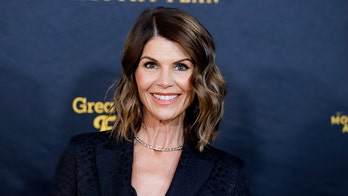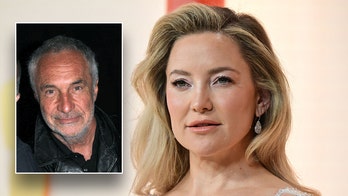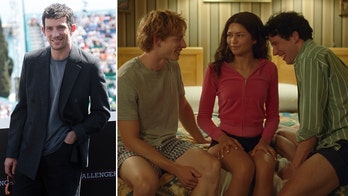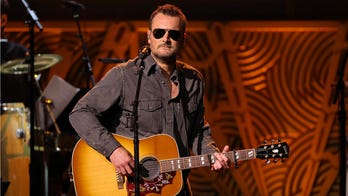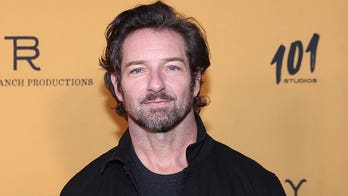Self-abosrbed much?
Singer Marilyn Manson said the aftermath of the 1999 Columbine High School massacre “destroyed” his entire career at the time.
The Guardian conducted the bizarre interview with Manson where the rocker “flicked” the genitals of reporter Alexis Petridis and held a fake gun to his head. After the 48-year-old's shenanigans, he explained that after the April 20, 1999, school shooting his career went into a downward spiral.
"Give them the money and let them make their own choice: guns or records. If [Columbine gunmen] had just bought my records, they would be better off," Manson told the Guardian.
"Certain people blame me for the shootings at schools — I think my numbers are low, and hopefully they go up on [my upcoming] record. But, honestly, the Columbine era destroyed my entire career at the time."
JUSTIN BIEBER TOLD MARILYN MANSON ‘I MADE YOU RELEVANT AGAIN,’ SAYS SHOCK ROCKER
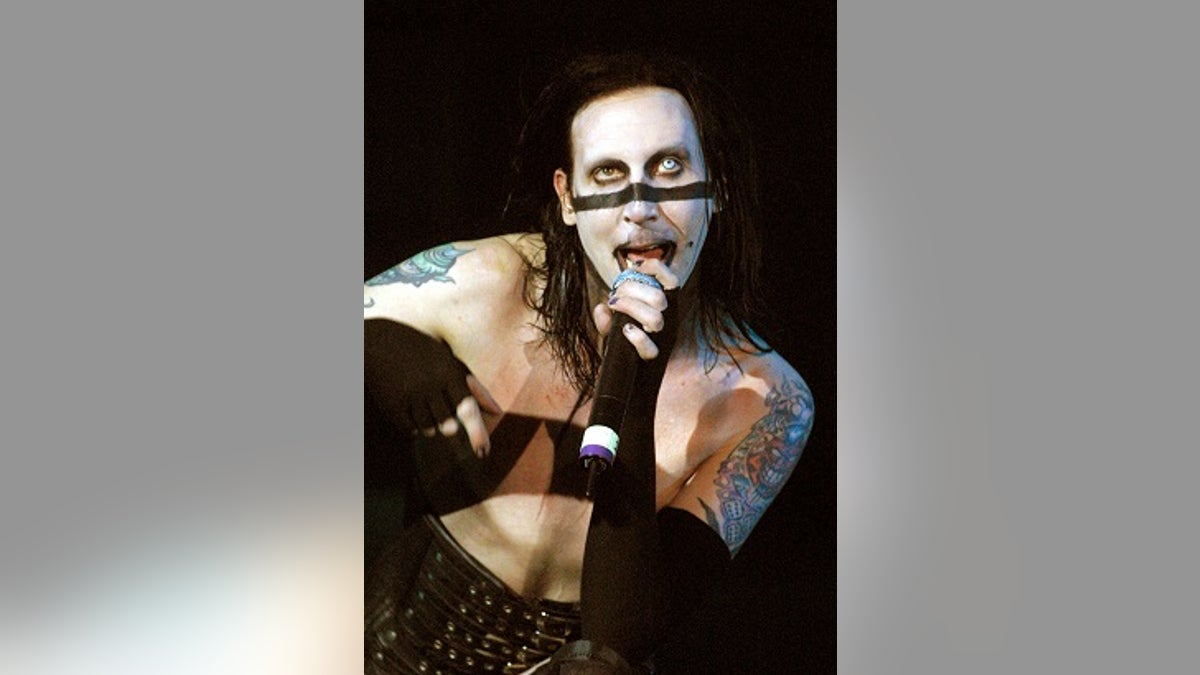
Marilyn Manson performs during a sold-out show July 1, 2001 at the House of Blues inside the Mandalay Bay Resort & Casino in Las Vegas. Manson is touring in support of his album "Holy Wood: In the Valley of the Shadow of Death." - PBEAHUKZUEQ
Columbine High School students Eric Harris and Dylan Klebold fatally shot 13 people and wounded more than 20 others before taking their own lives. At the time, there were false reports going around stating the gunmen were fans of Manson. Later reports showed the two teenagers were not fans of the rocker.
Before the mass shooting, Manson was recognized as one of the most controversial figures in music. His band’s live performances were deemed offensive and improper by state legislators. The singer said many of his concerts were protested. South Carolina paid the singer $40,000 to not perform there and Florida warned students they would be expelled if they attended his concerts.
“Well, I asked for it,” Manson said.
“You don’t make a record called 'Antichrist Superstar' and not expect people to hate you. But I wanted to do something that made a difference. I wanted to put a f----ing dent in the world, like my heroes: [Salvador] Dalí, Jim Morrison. I knew that there were people who would take it at face value, and that there were people who would see into it more deeply, and it would be that dichotomy that would cause chaos,” he explained.
Manson’s post-Columbine album “Holy Wood (In the Shadow of the Valley of Death)” was praised by critics, but not a commercial success.
LADY GAGA DESCRIBES FAME AS ‘VERY PSYCHOLOGICALLY CHALLENGING’
After the massacre, Manson said he started receiving death threats every day especially in Colorado.
“I would just get on stage and smash beer bottles and cut myself and go, ‘F---you, bring it,’ – I’ve got scars all over my chest – I can show you. I would jump into the crowd and punch people. It wasn’t even those people who were at fault," Manson said.
"But my dad gave me the best advice: ‘If people are going to kill you, son, they wouldn’t tell you in advance.’ No, I don’t miss that at all. It made everyone around me upset. And I discovered that police bomb dogs are also drug dogs. So when there were bomb threats, I had a very difficult time hiding my narcotics.”
Manson has since revived his career. He's gearing up to release “Heaven Upside Down” on Oct. 6, 2017. The singer still tours and sells out stadiums. He also has appeared on television shows including “Salem” and “Sons of Anarchy."
